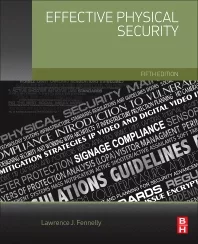The Universal Qualities of Effective Leadership
If a group of business leaders was asked, “What’s one of your top priorities in managing your business?” many would respond, “Making sure we have the right persons to lead the business.”
From the owner of a professional athletic team, to the head of a government agency, to the CEO of a Fortune 500 company – everyone who looks at the bottom line is concerned with making sure the right leaders are in place to help make their respective organizations more effective.
This interest is in large part the result of the now common realization that effective leadership is essential for any organization to gain competitive advantage or deliver on its mission. And while high-profile corporate and political leaders tend to receive the most accolades for effective leadership, many of the best leaders are far from being household names. They usually don’t have responsibility for thousands of people and millions of dollars on a balance sheet. The need for effective leadership extends throughout the entire organization; it does not begin and end at the top. It also covers every organizational function, including HR, legal, operations and security.
From the owner of a professional athletic team, to the head of a government agency, to the CEO of a Fortune 500 company – everyone who looks at the bottom line is concerned with making sure the right leaders are in place to help make their respective organizations more effective.
This interest is in large part the result of the now common realization that effective leadership is essential for any organization to gain competitive advantage or deliver on its mission. And while high-profile corporate and political leaders tend to receive the most accolades for effective leadership, many of the best leaders are far from being household names. They usually don’t have responsibility for thousands of people and millions of dollars on a balance sheet. The need for effective leadership extends throughout the entire organization; it does not begin and end at the top. It also covers every organizational function, including HR, legal, operations and security.
Rounding Out a Leader
Although the specific challenges and issues affecting an organization or a function vary widely, the key qualities needed in effective leaders are universal. In my opinion, these qualities are the following:
- Vision Creator. Effective leaders understand where the organization or business needs to go. In other words, they get it. More effective leaders are able to translate the general concepts of where the organization needs to go into a vision of the future. This lays the foundation for the daily steps that members of the organization will take to get there.
- Able to Get Others to Follow. In the most basic sense, it is very hard to call someone a leader if there is no one following. Sure, there are lots of smart people who may be able to see where an organization may need to go and have the courage to start the journey. However, without the skill and talent to encourage and persuade others to accompany them, such individuals are scouts, not leaders.
- Effective Communicator. Rarely have I seen an effective leader who was not a good communicator. Admittedly, President Reagan and now President Obama represent the gold standard in the minds of many people when thinking about what it takes to be an effective communicator. In the real world of business in which most of us operate, the leaders who are considered effective communicators are those who are able to speak plainly, clearly, truthfully, honestly and sincerely to others in the organization. We have all heard the buzz word “straight talk.” Unfortunately, straight talk is still a rare commodity in many organizations, but the best leaders practice it effortlessly.
- Results Oriented. The most effective leaders with whom I have worked want to get things done. They want to accomplish the right things for their organizations. While the personalities of effective leaders may range from the quiet and slightly introverted to the outgoing and gregarious, they all have confidence when it comes to making sure members of their organizations know what is expected of them and how they will be measured in terms of performance.
- Team Players. Ideally, a strong leader is also part of a team of other strong leaders. As a leader, it is important to have the ability to avoid the pitfalls of excessive turf protection and unhealthy competition with others in the organization.
- Able to Handle Change. We all have heard phrases like “change is inevitable” or “change is constant” so often that we may have become numb to the fact that these overused phrases are actually true. Leaders who are not thrown off by change, who are able to re-group and plot a new course when needed, are the ones who stand out in my memory. Ambiguity is usually a companion of change, and leaders who are able to operate effectively when there are lots of shades of grey will normally stand out.
I have been fortunate to work with effective leaders in various countries around the globe. Over the years, my career in human resource management has enabled me to reach my own conclusions about what makes up the core qualities of effective leadership. My set of core qualities may not be as expansive as some lists developed by specialists in organization development and leadership. However, I would be very surprised to find a list of leadership qualities that did not contain variations on the ones listed above.
Links
Looking for a reprint of this article?
From high-res PDFs to custom plaques, order your copy today!






